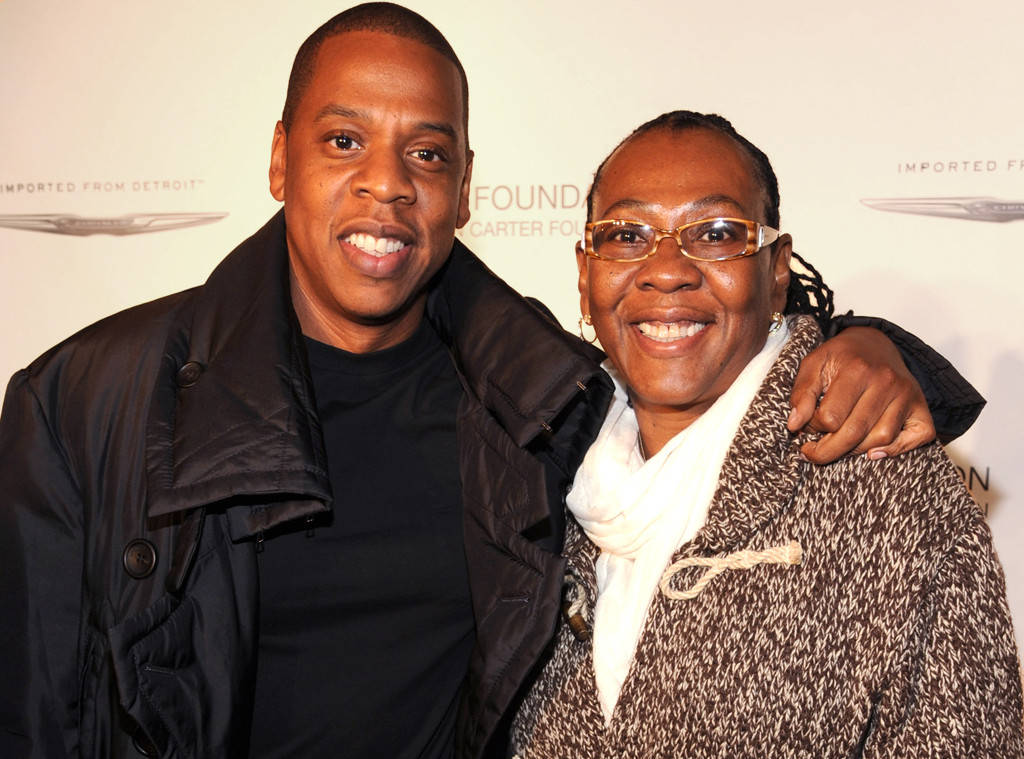Nation
Trump’s Alt Reality (& Policing the Crisis)
Despite a lot of persiflage to the contrary, Donald Trump is sometimes a remarkably cautious man. Yesterday he was able to see many sides to the controversy down in Charlottesville, and was strikingly careful about inflaming any of them.
Tweet the Press: How the Media Enable Trump
Like a bad Broadway play, the Anthony Scaramucci show closed after only 11 days. But in his brief time as White House communications director, the Mooch gave quite a performance. He announced himself with a string of profanities, duly reproduced in the quality journals, which was a real pleasure.
Grown-Up Hip Hop

Jay-Z & his mother Gloria Carter rap about her coming out in “Smile”–an exemplary track on 4:44.
Songs of Summer: Loesch and Lynch
When I was young and things made sense, every summer Hollywood would release a handful of outrageously expensive movies in which aliens, sentient robots from the future, natural disasters on CGI steroids, etc. would wipe cities off the map and send audiences home happy. Cleansed.
On “Wonder Woman”
Most of what I’ve read about Patty Jenkins’s 2017 Wonder Woman, and most of what my friends have said about the movie, has been strongly positive, and the aspect of the film commented on most positively is its sometimes explicit, sometimes implicit feminism. I have no quarrel with these pieces and comments; I saw the film twice and thought it not only intelligently, brashly feminist but also stylish–the classiest and least patriarchal superhero film I’ve seen in a long time, and I’ve seen a lot of them.
Watching it as a pacifist, though, I was aware of another pattern of meaning, one having to do with the film’s naturalization of war and marginalization of peacemaking, of what William James called “the war on war.”
A Guided Tour Through a Graveyard: Some Representations of War and the Hazards of Strong Contextualism
I shall describe and attempt to interpret a difference in representations of war in two television series made by the same people about the same war, Band of Brothers, which aired in 2001, and The Pacific, which aired in 2010. I hope to show that despite influential argument to the contrary—most notably Paul Fussell’s celebrated The Great War and Modern Memory—it is imprudent to make strong historicist or contextualist claims that the transformed nature of war since 1914 is a sine qua non for explaining modern ironic and anti-heroic representations of combat.
Pretty Little Pantoum
Many characters kill people
in the show I watch with my daughter.
What is this teaching her?
The men take their shirts off, often.
“Atlanta’s” Elevator to the Sanctum
The first ten episodes of Donald Glover’s marvelous FX series Atlanta aired weekly from early September through November 1, 2016. Its first season, in other words, unfolded throughout the weeks leading up to the presidential election. In retrospect the power of its first season may live on in as a powerful snapshot of what we were, or thought we were, in the last months of Obama’s America. It wasn’t a particularly pretty picture, but the very different feel of national events since November make me wonder if Atlanta‘s spectrum of tones can be repeated in the next season. Season One is almost always comic, but its humor ranges from darkly satiric to tender and romantic as the show conjures up rootsy yet media-savvy depictions of life in Atlanta.
Monkey Time: An Excerpt from “River Under the Road”
Scott Spencer’s River Under the Road is a condition of America novel that’s right on time even though it’s set in the 70s and 80s.
Trump vs. the Declaration
“The Declaration of Independence makes a difference,” said Herman Melville. So, we might respond, what difference does it make?
Goodwyn on Jefferson & Lincoln
The late historian Lawrence Goodwyn thought through the legacies of Jefferson and Lincoln in the following excerpt from a 2010 interview with Jan Frel.
The Color of Law
I just finished Richard Rothstein’s brilliant—and far from uplifting—book The Color of Law. It’s been getting a lot of favorable press, and rightly so.
The book accepts (for the sake of argument, maybe—Rothstein is always parsimonious in his arguments) the principle that Chief Justice Roberts puts forward when he says that if residential segregation ‘is a product not of state action but of private choices, it does not have constitutional implications’. It is devoted to showing that, contrary to the prevailing myth that residential segregation (between whites and African Americans) is a product of a private choices it is, in fact, a product of government policies, all the way from the Federal level to the most local level, and this is true in the North as well as the South. Housing segregation in the US is de jure, not de facto. And… it shows just that. He makes his case in careful, meticulous detail, but in unfussy and inviting prose, packed with illuminating stories that illustrate the central claims.
Lieutenant Weinberg’s Lament
If it makes you feel any better, Americans are not all THAT divided. For example, there’s what NYT’s Frank Bruni called “the recent ugliness at Evergreen State College.” Long story short, student activists invited Evergreen’s whites to report to an off-campus “all-day program focusing on allyship and anti-racist work” rather than going to class. The so-called “Day of Absence,” held this year on April 14, is an annual Evergreen event that usually sees students of color meeting offsite for programs and conversations. This year, organizers opted to flip the script.
Out and Gone on the Left Coast
Conflict is abuse, harm is heteroglossic, and other phantasmagoria from an Oakland Sunday…